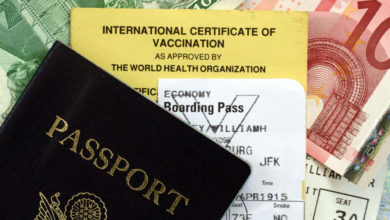
Gulf Insider talks to Adnan Gilitwala, Director of Dadabhai Travel, on the rise of remote working and its impact on the travel and tourism sector.
In the past year, majority of the workforce globally saw how certain tasks are accomplishable from home. Do you think the hybrid work model is here to stay?
I believe that the hybrid work model will continue to be implemented by companies who have not seen a negative impact on their operations while implementing a work-from-home model.
Certain companies have seen significant reductions in operating costs as well as higher worker productivity. The work-from-model has also expedited significant technological improvements in certain companies’ infrastructure that is necessary for future growth and sustainability.
There has been an increase in international remote meetings and conferences – how do you think this will impact the future of business travel?
Travel as an industry is ever evolving and continues to remain one of the most fluid operationally. Technology is necessary for growth and development, but due to the complexity of the industry and the numerous sub-divisions within it, individuals and companies involved can find ways and means to get their work done regardless of the circumstances occurring globally.
I personally do not believe that virtual or remote meetings and conferences will be the new norm. Our experience in the travel industry has shown us that the human interaction element that makes the industry work is still essential for its growth and the success of the players in the industry.
People may be more comfortable with interacting with their business partners virtually, but the most fruitful and substantial business developments will be fueled by meetings held in person.

What do you think are the advantages/disadvantages of remote working?
Both are numerous and are completely dependent on the organization implementing work-from-home policies and how well-equipped they are to adapt to different working models.
The strange nature of working from home means that the advantages I may see are disadvantages for another as there are both boons and challenges with remote working.
To name a few advantages – it can lead to greater productivity as people may feel more comfortable at home and working at their own pace. Companies are also able to save on costs associated with having more people on the office, such as electricity, rented parking spots, or even amenities in their pantry such as tea and coffee.
A few disadvantages I have seen include no disconnect between someone’s personal and professional life which can lead to reduced output from an employee. Employers’ expectations are higher, often leading to increased working hours or workloads for employees. In addition, the fact that our working culture in Bahrain and arguably across the region is historically based on having people in the office, and numerous people are not able to adapt to new ways of working, could lead to issues developing within certain companies.
The concept of workations – working remotely on vacation – has become widely popular. How do you see this shaping the future of work and the travel industry?
Workations as a concept are definitely intriguing, but I personally believe that in practice, they aren’t very practical or feasible. Again, this is all dependent on the person who decides to take a workation and just how well they are able to organize and manage themselves, and whether it is an affordable option for them or not.
Very few people can afford to rent a luxury villa in the Maldives for a workation, while others may not accept the idea of having to work while technically on a holiday in new or familiar places.
It’s very important for people to be able to draw fine lines between their personal time and professional time and I personally am not a fan of mixing the two together. I do not see this having a significant impact on the industry as a whole, and I believe the stories we hear of people actually taking workations will be limited.
How do you predict the industry will pick up by end of 2022?
All the tangible signs point towards growth. The figures that we see on a monthly basis show that travel is picking up in terms of tickets issued, hotel nights booked, and other services provided as well.
We are still far from reaching the pre-COVID numbers, but we are getting there. Vaccination campaigns have helped immensely in promoting a more favorable impression of travelling locally, regionally, and internationally.
We know people are itching to take their next trip or holiday and we are here and ready to make it happen for them. As a conservative guess, I predict that by the start of 2023, we will start seeing growth in the numbers achieved in 2019.





